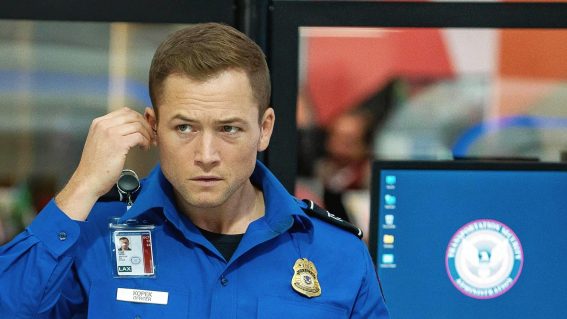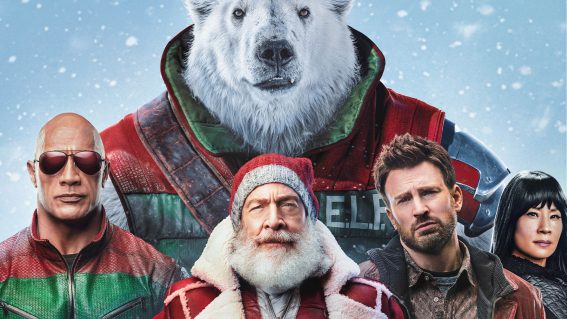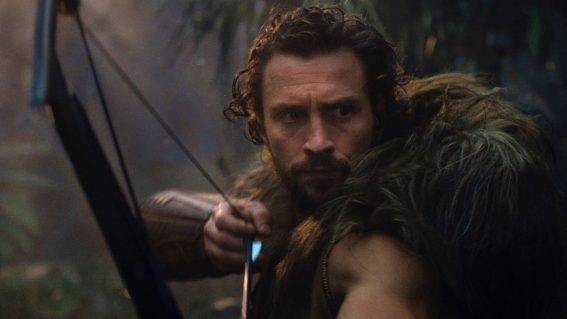Counting down our 20 favourite shows of 2024 – and where to watch them
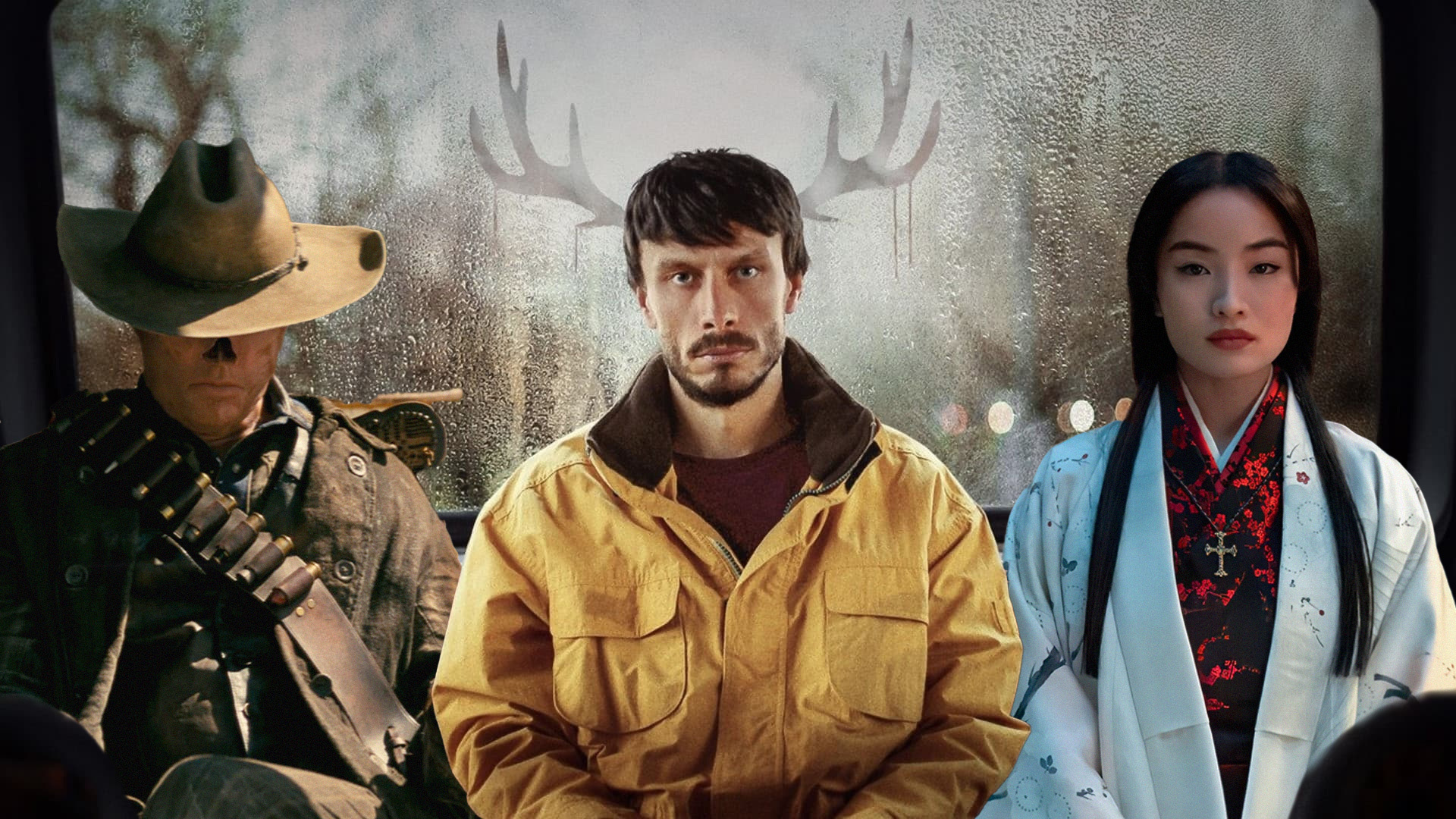
Join us for this countdown of our favourite 2024 shows, and find something to add to your watchlist.
Another big year for TV, 2024 once again rivals (cough) cinema for the best viewing of the year. Expect to see some big returning shows in our list of the year’s best, compiled from best-of lists by a large number of Flicks contributors—but also, excitingly, a lot of new-to-2024 shows, including two that take out the top spots in our countdown.
Best-of lists contributed by: Rachel Ashby, David Michael Brown, Luke Buckmaster, Adam Fresco, Vicci Ho, Eliza Janssen, Liam Maguren, Steve Newall, James Nokise, Stephen A Russell, Daniel Rutledge, Fatima Sheriff, Sarah Thomson, Cat Woods. Where possible, each entry quotes from Flicks coverage published at the time of release.
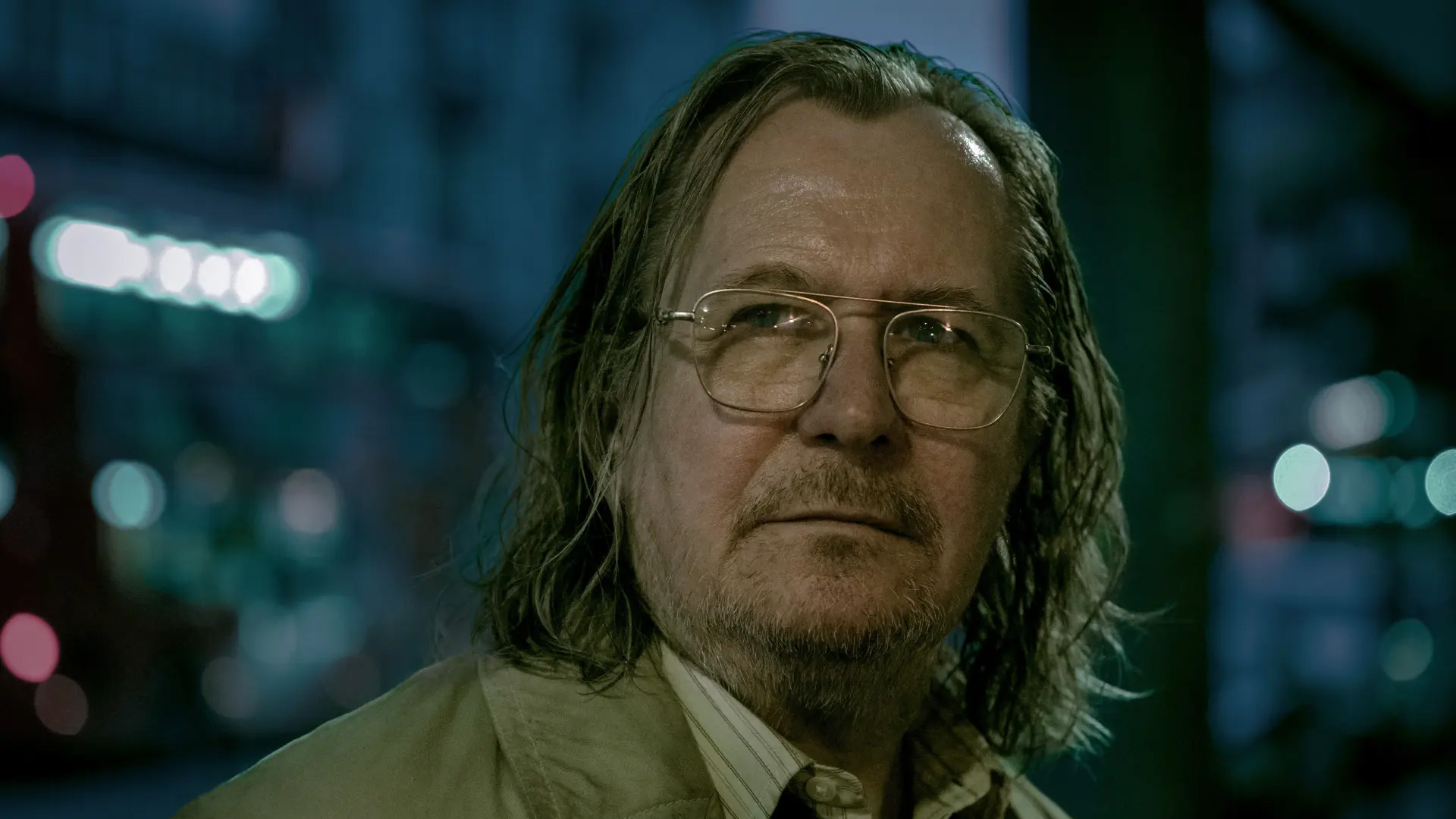
20. Slow Horses
As the stakes have increased over Slow Horses’ run, accompanied by more action, the show has moved away somewhat from the dreary day-to-day dead-end that its failed MI5 agents started in. That’s a slight shame, as their competence is becoming harder to question (which dents the premise somewhat). It’s still superior spy telly though, continuing to be elevated by humorous asides and insults, the welcomely revolting presence of Gary Oldman and, in this season, a villainous turn by Hugo Weaving.
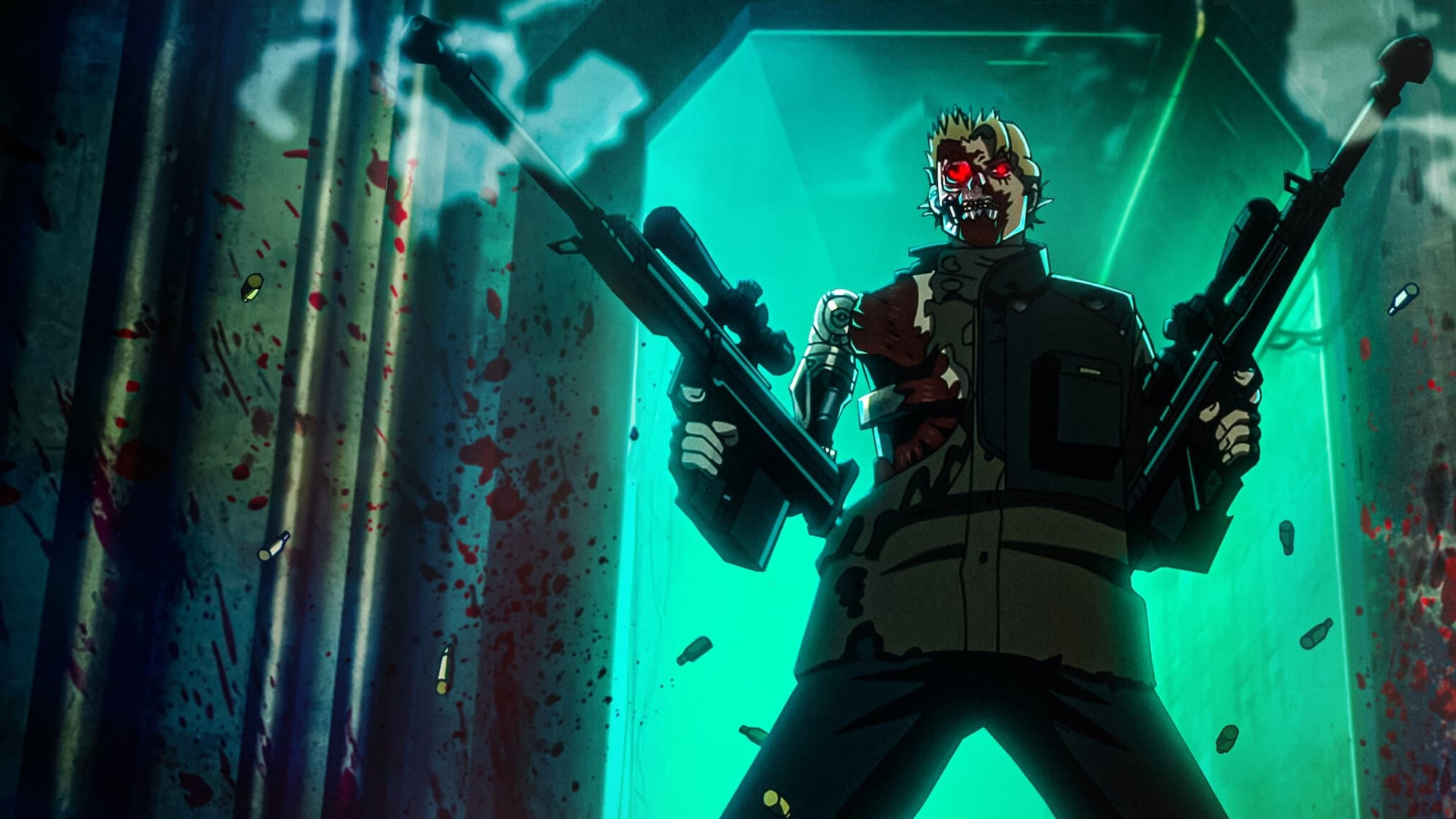
19. Terminator Zero
This animated entry in the Terminator universe, set in 1997 Tokyo in the lead-up to Judgment Day, proves there’s still plenty of life left after a series of flawed, unsuccessful cinematic reboot attempts. The setting and style adds an anime/cyberpunk dynamic to proceedings, as well as an extra emotional layer to this tale of a Japanese computer genius plagued by nightmares of an impending nuclear apocalypse (achieving extra resonance, set in the only country to have been attacked with atomic bombs). Then, of course, a bloody Terminator shows up…
“It feels more like a familiar story told with new characters and altered dynamics, rather than anything that specifically leads into or is fed by other elements in the franchise,” Dominic Corry says in his feature explaining how Terminator Zero fits into the often-dysfunctional canon.
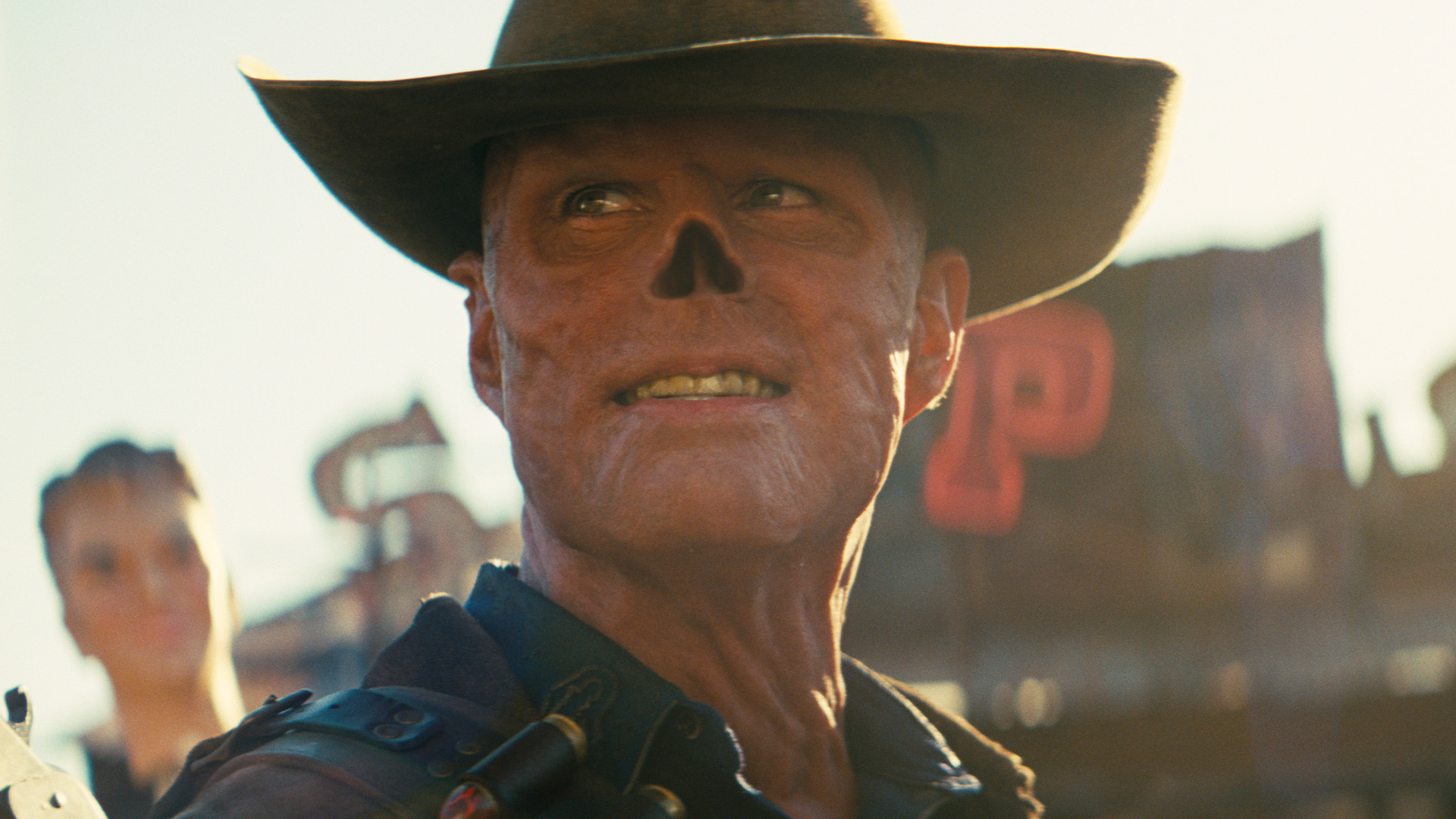
18. Fallout
A hyper-popular satirical post-apocalyptic series was the latest high profile, big budget video game adaptation to come to the screen this year, Fallout’s darkly comic, gleefully violent adventures enthusing us from the opening episodes. For the uninitiated, it’s set hundreds of years after the nuclear apocalypse, filled with retro-futuristic tech and the remains of the cheery Americana that prevailed until the bombs fell. Not beholden to a beloved narrative like The Last of Us, the show tells a new story, one that’s irradiated with the vibes of the games—familiar to fans, still enticing to novices.
“The fact that the Fallout series is good—in fact, overwhelmingly good—is one of the nicest surprises in television this year,” wrote Clarisse Loughrey in her Show of the Week column.

17. Ludwig
Ludwig arrived just when I needed it… A breezy, gentle and comic mystery series starring Peep Show’s David Mitchell that was perfect comfort food (earning itself more than a couple of comparisons to the BBC’s long-running Jonathan Creek). Socially hapless as usual, Mitchell is perfect for the role of a reclusive puzzle book author who steps into his disappeared twin brother’s shoes to find out what’s happened to him—finding himself impersonating a Detective Chief Inspector and proving quite good at solving homicides, thanks very much. Six eps, no filler, and a supporting cast including Anna Maxwell Martin, Karl Pilkington, Felicity Kendal, Derek Jacobi et al.
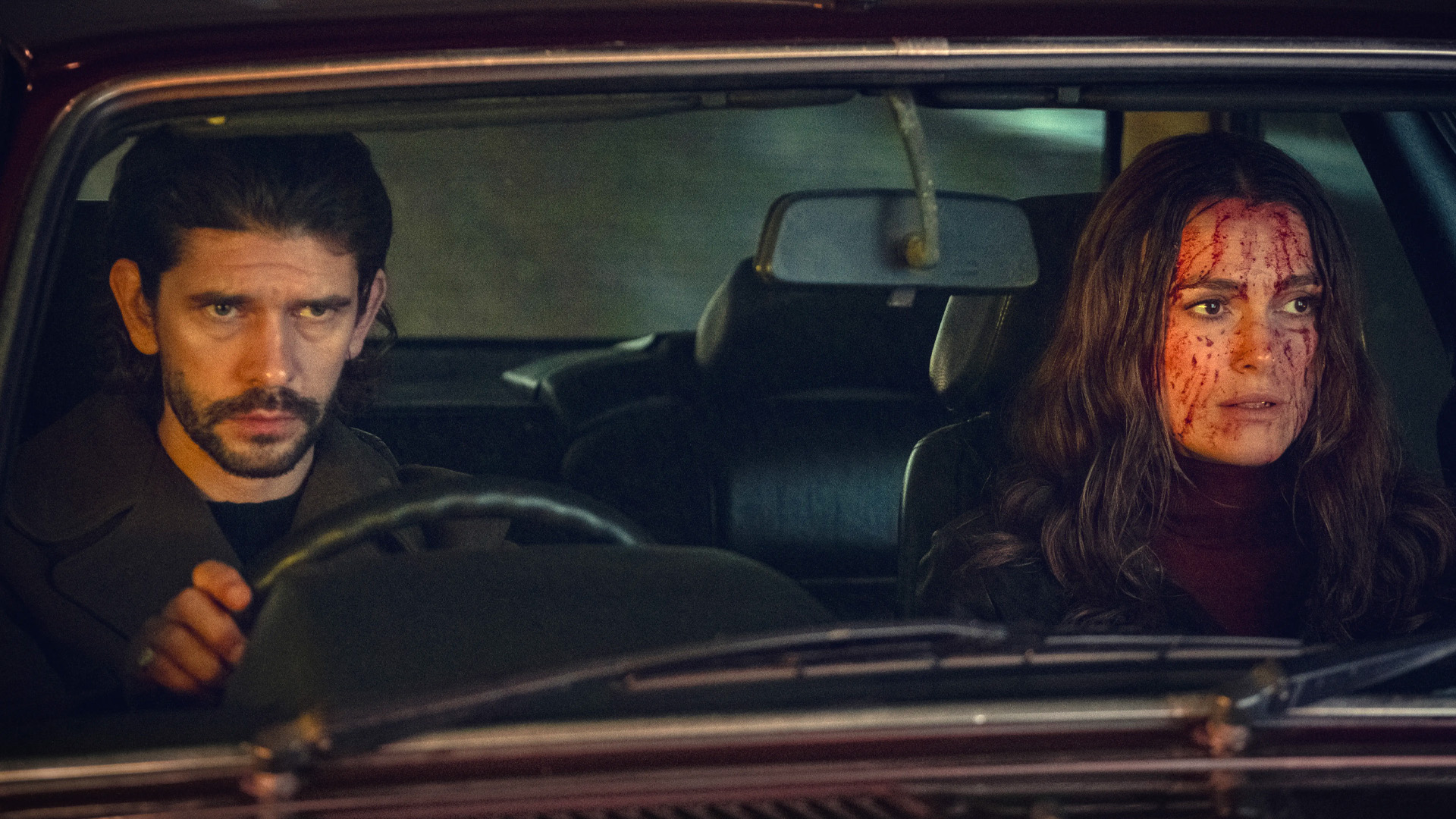
16. Black Doves
The Agency, The Day of the Jackal, Black Doves… something’s in the stream(ing) water right at the minute, and it involves (quite big, actually) stars with familiar names like Fassbender, Redmayne, or Gere turning up in our living rooms to do covert, dodgy things in the shadows. Netflix recruited Keira Knightley, Ben Whishaw and Sarah Lancashire for this tale of a, yes, secret organisation who sends its operatives to get cosy with powerful figures. For Knightley’s character, that turned into marriage to the UK’s Defence Secretary—but of course things would have to go wrong for her in order for the show to go right for us.
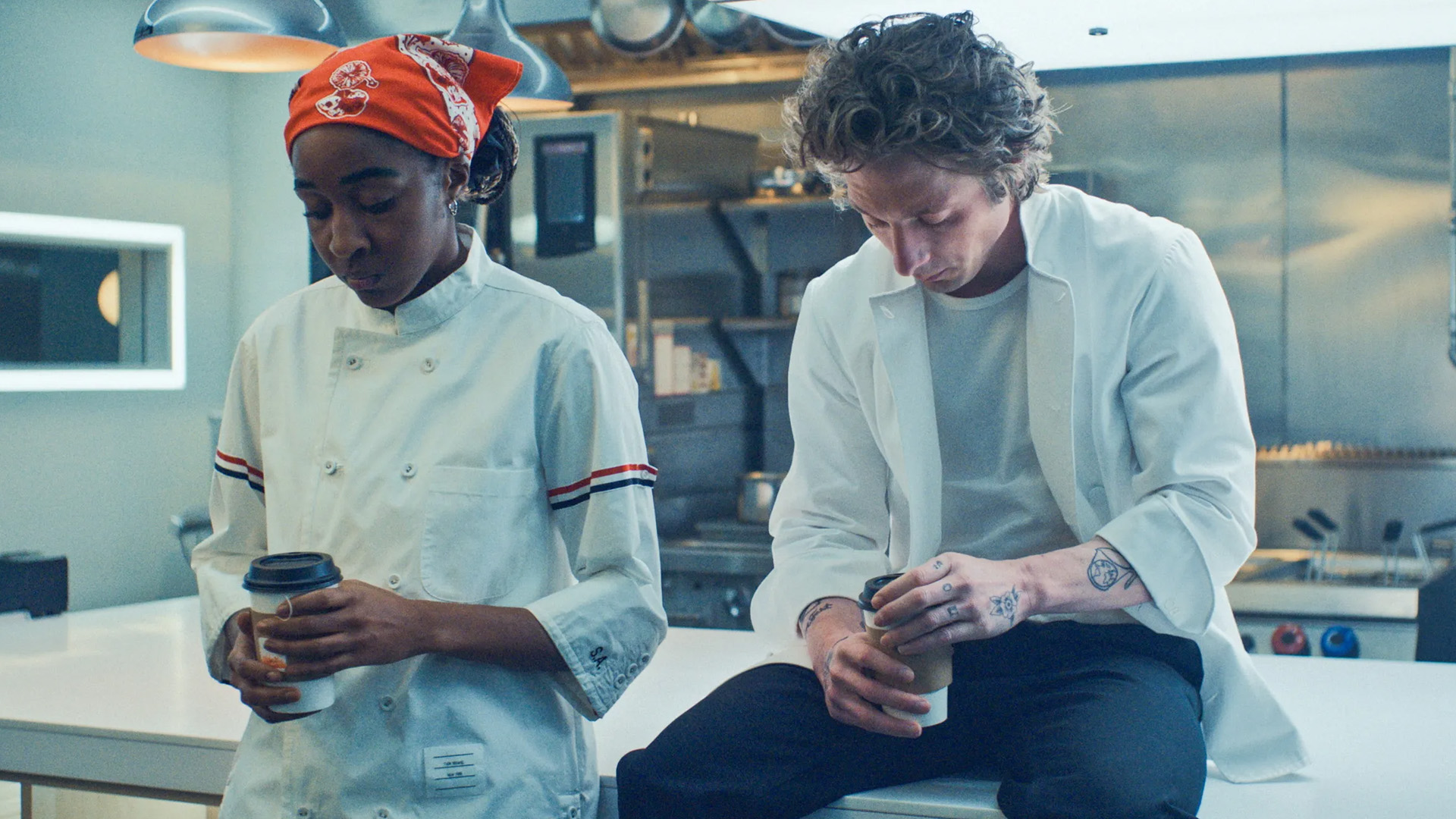
15. The Bear
If food is science, then the aphorism “what goes up, must come down” feels appropriate to the reaction to season three of The Bear. Last year we praised the detours the show welcomely permitted itself to take, and in 2024 they were perhaps more pronounced. If it wasn’t clear from the second season, despite all the tension surrounding what is going to happen narratively, the show’s focus is not on storytelling destinations—and that did not work for a chunk of its audience. Like many restaurants, the hype has settled down a bit, and now those of us still on board get to enjoy what it does so well without quite so much clamour about it.
“Season three is a little cooler, a little less explosive than what’s come before,” writes Clarisse Loughrey in her Show of the Week column. “But psychological intimacy is now the driving force of creator Christopher Storer’s world, and even what doesn’t quite work feels, at least, consistent.”
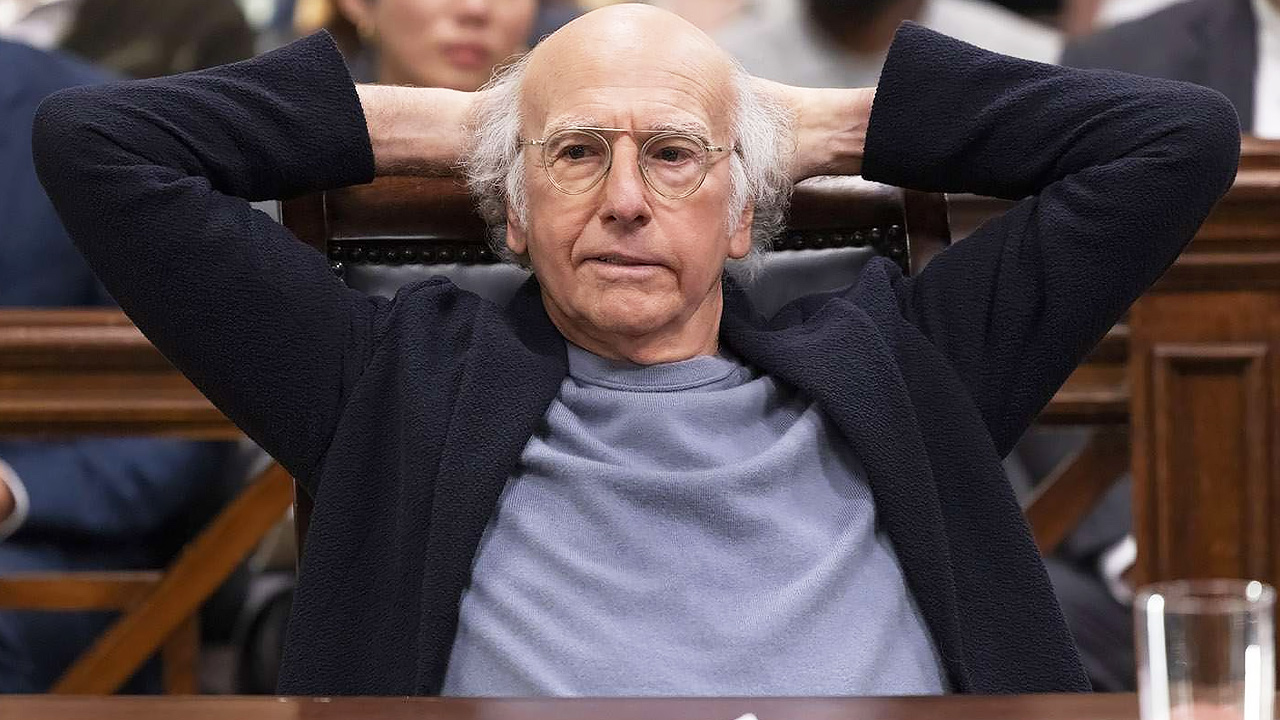
14. Curb Your Enthusiasm
Frolic if you must, Larry David’s Curb Your Enthusiasm came to an end this year after twelve seasons of varying consistency and some big gaps between them (S8 aired in 2011, S9 in 2017, S10 to S12 in the relatively short window of 2020-2024). Perhaps not the strongest of the “recent” seasons, but in mirroring the series finale of Seinfeld with old mate Jerry along for the ride, David achieved closure for not one, but two, comedy classics.
“The sheer audacity of repeating this concept, given the shadow it cast and the extent of the splashback, is something else,” observed Luke Buckmaster of the finale. “David uses his big curtain closer as a déjà vu act, sensationally continuing his characterisation as an own-worst-enemy agitator never able to let things go.”
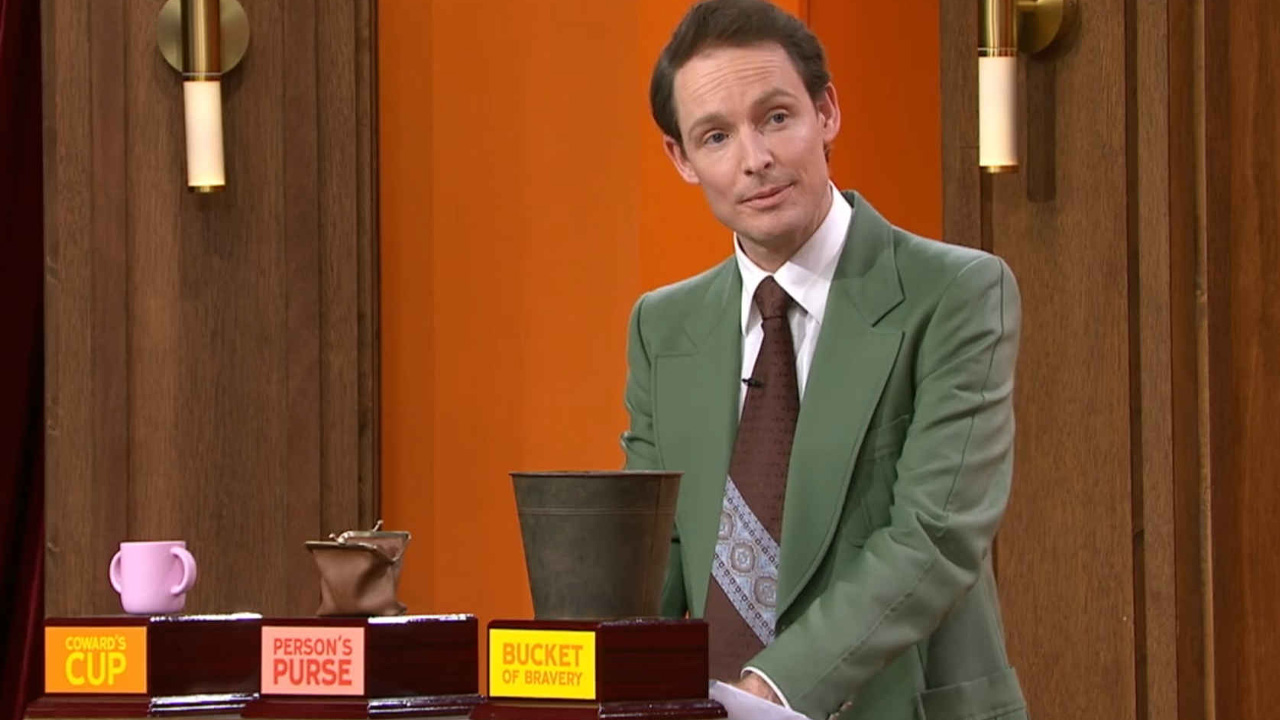
13. Guy Montgomery’s Guy-Mont-Spelling Bee
Whether you’re talking about Aotearoa’s Guy Montgomery’s Guy Mont-Spelling Bee or the Australian Guy Montgomery’s Guy Mont-Spelling Bee, the two versions have much in common: comedians being hilariously awful at spelling, every possible laugh extracted from the spelling bee format (often in creatively absurd ways you wouldn’t expect), TV award nominations in both countries, and evidence that embedding your own name so deeply into a show’s title will ensure you’ll always have to host it. Guy’s love of language, glee at his contestants’ misfortune and delight at writing them into corners know no bounds, in one of the very best panel shows out there.
“There are a few elements here that encourage the players—and audience—to have what scans as authentic, belly-deep fun: no weak links, no phoned-in laughs,” writes Australia’s Eliza Janssen in a review of the show that proves it’s not just parochial Kiwis getting a kick out of it: “One is Montgomery’s open malevolence.”
For more on the show, check out my 2023 interview with Guy.
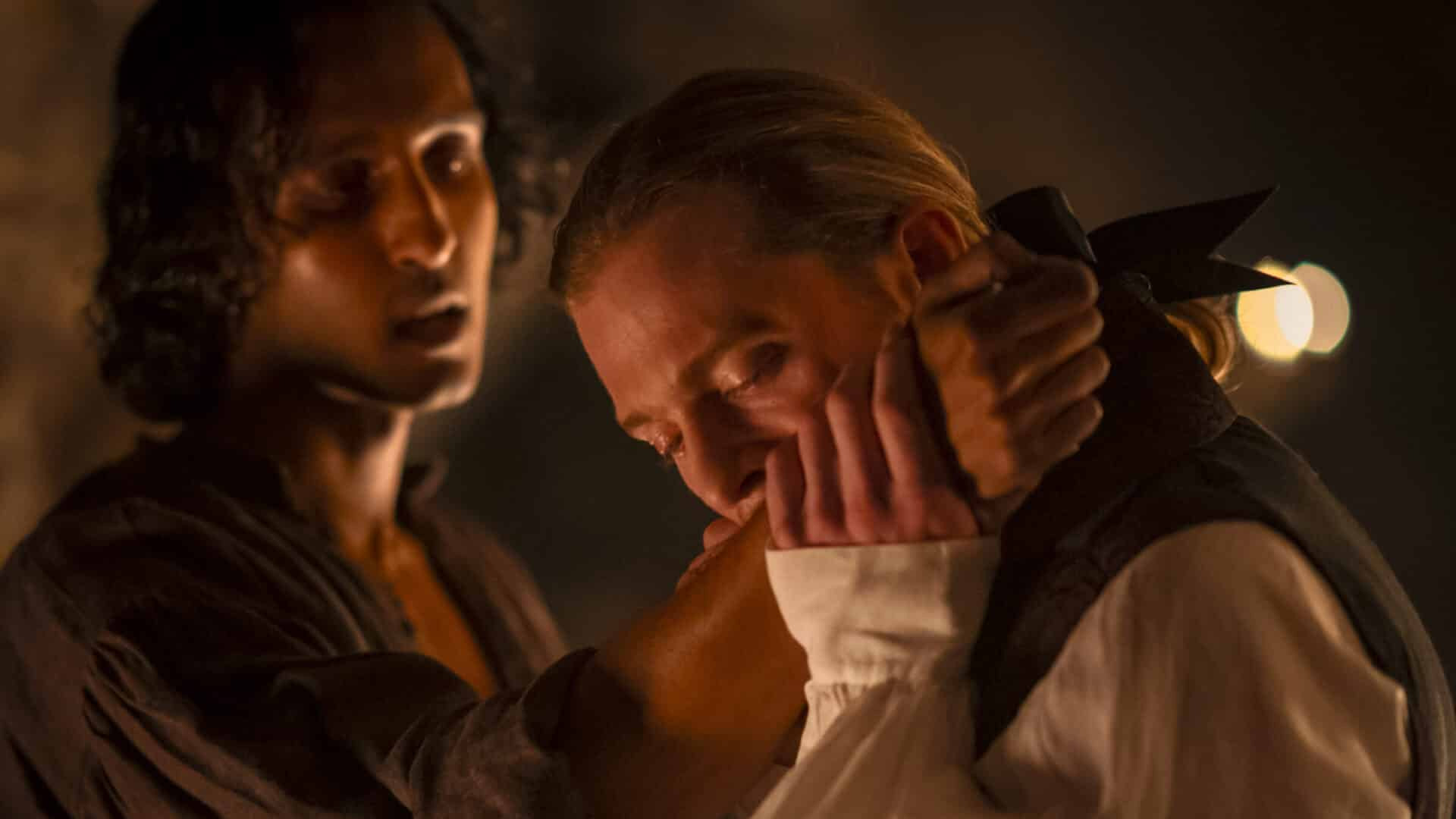
12. Interview with the Vampire
Doing what Tom Cruise and Brad Pitt weren’t brave enough to tackle overtly in 1994’s film adaptation, this series is more comfy with the queer elements of Anne Rice’s novels, with Jacob Anderson (Game of Thrones’ Greyworm) and Sam Reid (The Newsreader) the latest Louis and Lestat. Season two focused on the second half of Rice’s first novel, set in Paris and centred around the Théâtre des Vampires (the time period updated from the 1870s to the aftermath of WWII). With a stronger critical response to the two seasons than one may have expected, including plenty of praise for the performances, Interview with the Vampire defies both the current infatuation with resurrecting familiar IP and also 2002’s dire movie sequel Queen of the Damned.
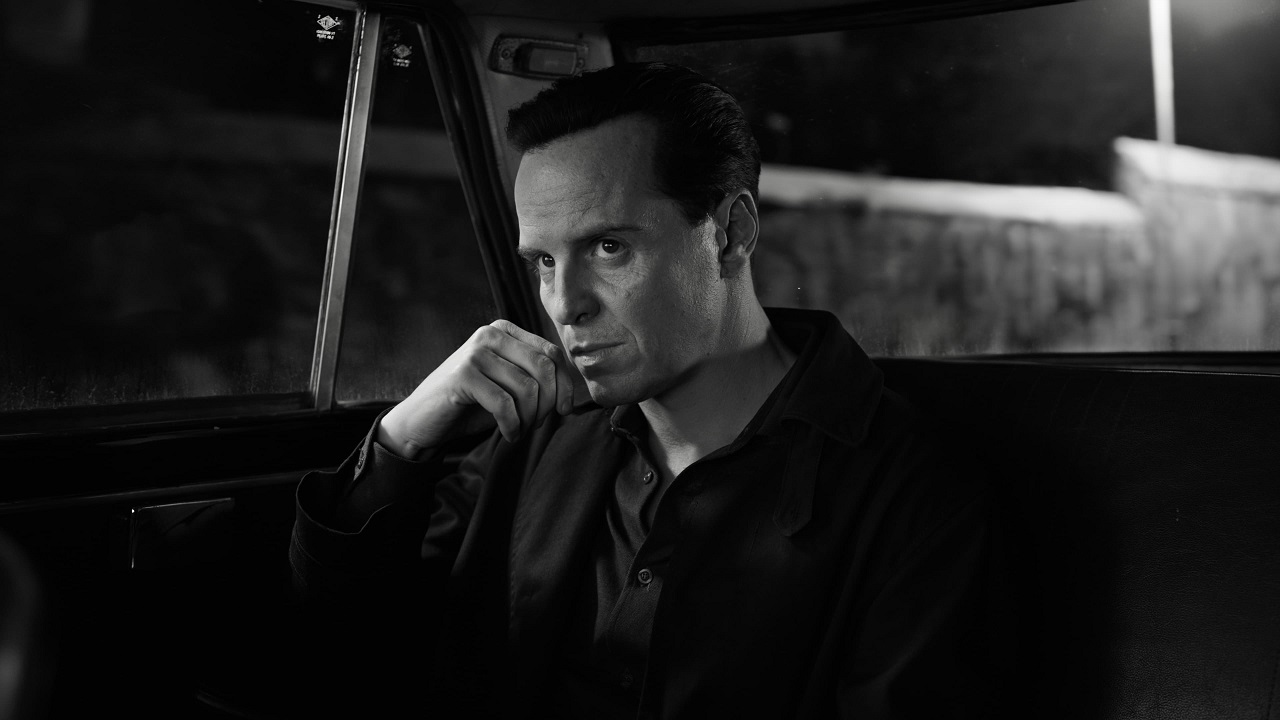
11. Ripley
Patricia Highsmith’s Tom Ripley has enjoyed a few screen adaptations, none of which allow us to spend as much time with him as this year’s series for Netflix. Written and directed by Steven Zaillian (screenwriter of The Irishman/Moneyball/Schindler’s List), shot almost entirely in black and white, and revisiting Ripley’s foray to Italy previously seen in cinemas in 1999, the series benefits from being able to spend more time on the subtleties of Highsmith’s original novel. Plus, as we thought from the day it was announced, Andrew Scott is a much more chilling sociopath than his floppy-haired predecessor.
“Ripley is cold and calculating; he’s a thorough planner; he’s aware of consequences and implications and he’ll go ahead with his dirty deeds anyway, thankyouverymuch,” says Luke Buckmaster in his review. “Scott’s performance is top-notch and gets under your skin more than Matt Damon did in Anthony Minghella’s 1999 film adaptation.”
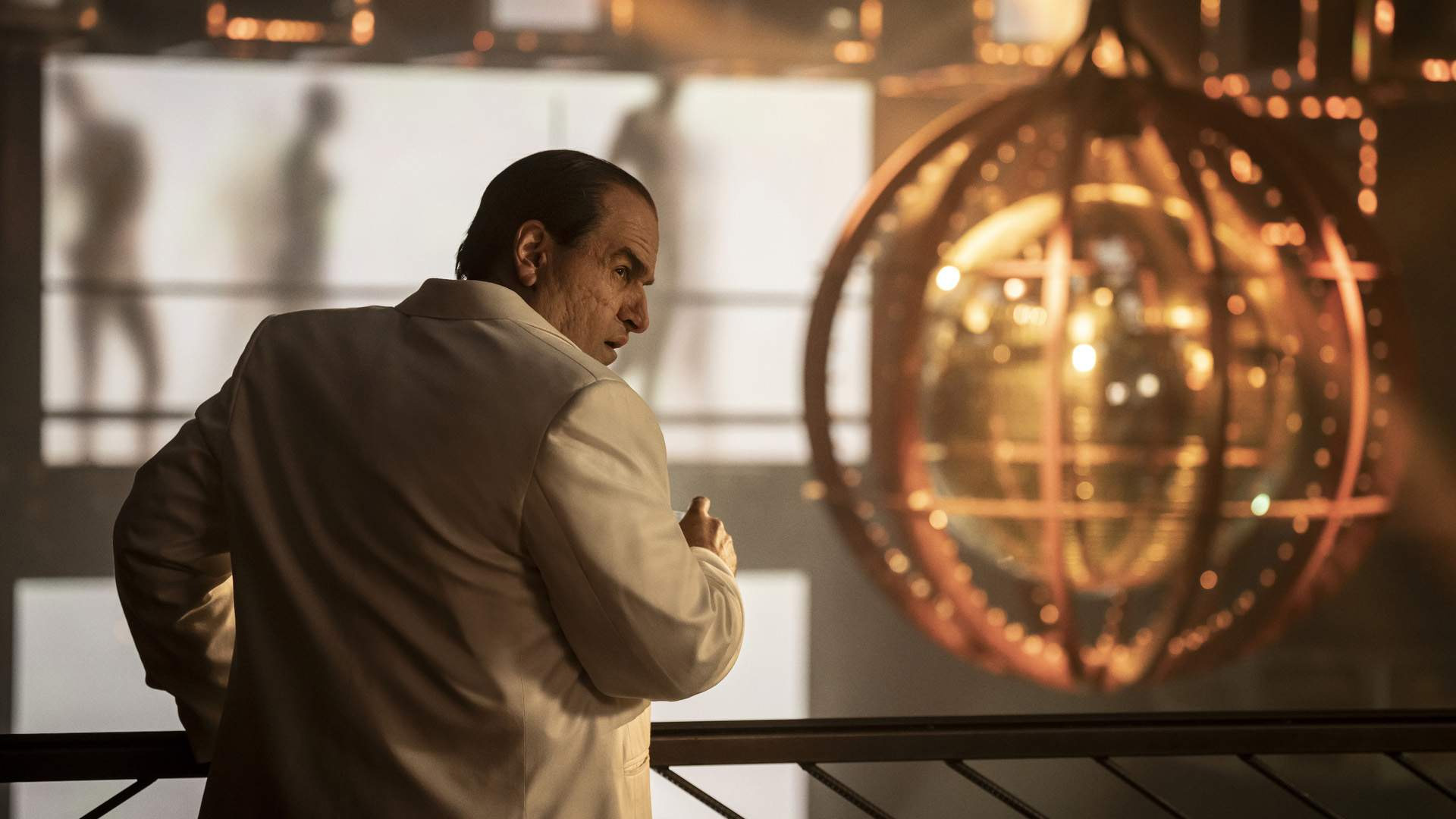
10. The Penguin
After his supporting turn in Matt Reeves’ Robert Pattinson-starring super-noir The Batman, Colin Farrell returned to the mean streets of Gotham, climbing the ranks of the city’s underworld as The Penguin. It was an underworld tale full of revenge and envy, focusing on the ambition of those who’d never become “made men” unless they displaced those above them. Able to emote from under the weighty prosthetics, which held up for most of the show, Farrell’s performance carried emotional heft, as did an excellent Cristin Milioti opposite him.
I was impressed, too, by the show’s resistance to overt fan service: “No bat or cat cameos, which is welcome, keeping the focus tight and personal, and illustrating just what sets Gotham apart from better-functioning cities (and in turn allowing it to be a setting replete with enemies powerful enough to believably square off with Batman in the future).”
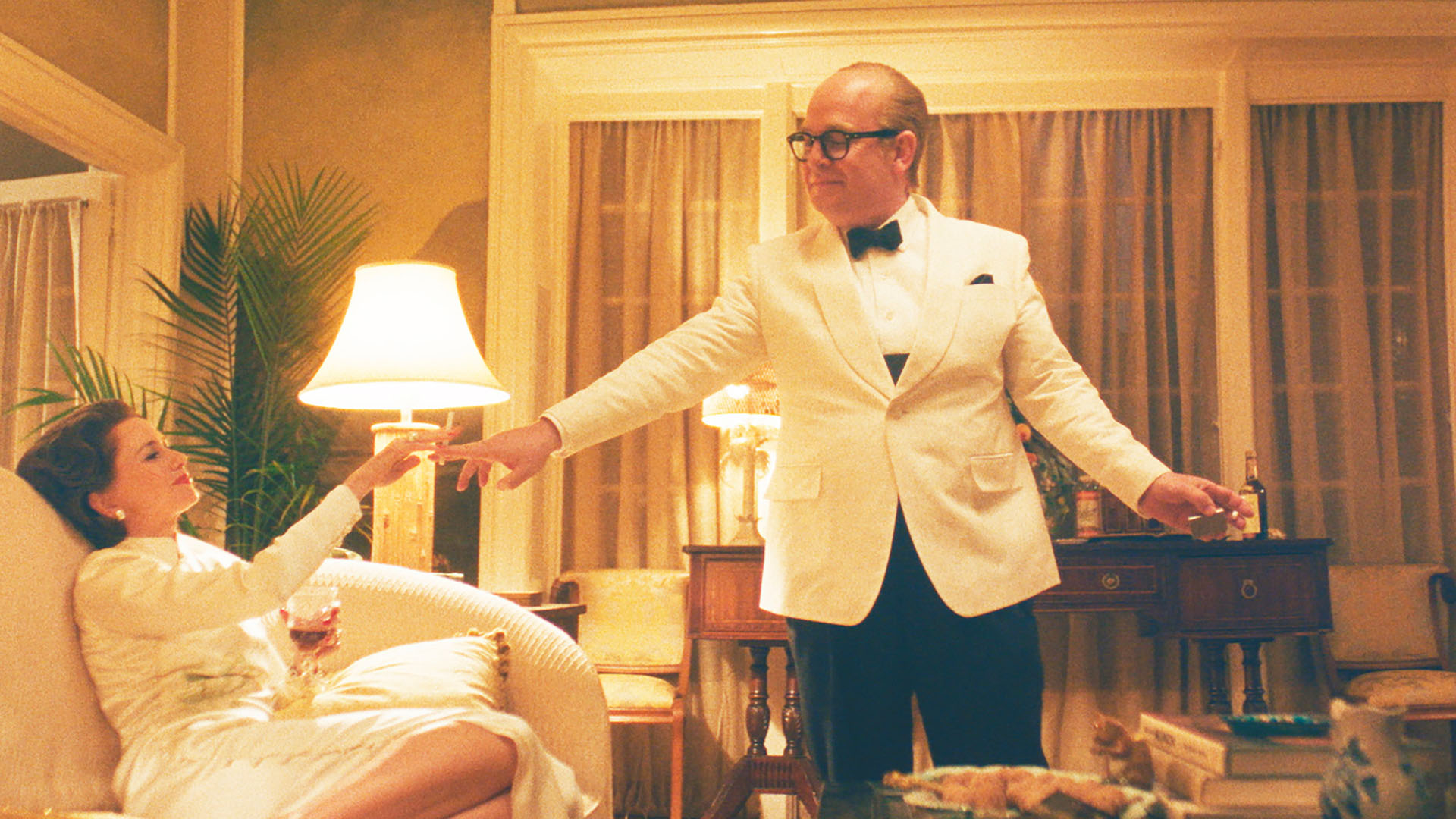
9. FEUD: Capote vs. the Swans
Supposedly (yet) (another) Ryan Murphy anthology series, Feud took its sweet time to return after its strong first season, 2017’s FEUD: Bette and Joan. At least until this year’s claustrophobic tale of Truman Capote and his “swans”, the high society socialites who were enamoured with the author and his poisonous gossip and pen—until turned on them. Tom Hollander is an excellent Capote, navigating the difficulties of a performance that could easily slide into caricature, while swans Naomi Watts, Diane Lane, Chloë Sevigny and Calista Flockhart uniformly impress. While not as trashily entertaining as the first season, it’s vicious, and somehow both intimate and detached (like the “friendships” at its core).
As Clarisse Loughrey observes in her Show of the Week column: “Capote vs The Swans, lavishly directed by Gus Van Sant, Max Winkler, and Jennifer Lynch, has us sequestered in this hermetic, social bubble. It feels like we barely step foot outside, and that every scene takes place in a parlour room, lounge, or upper-crust eatery, their net curtains drawn to block out harsh, unflattering daylight or any suggestion of the city’s bustling masses.”
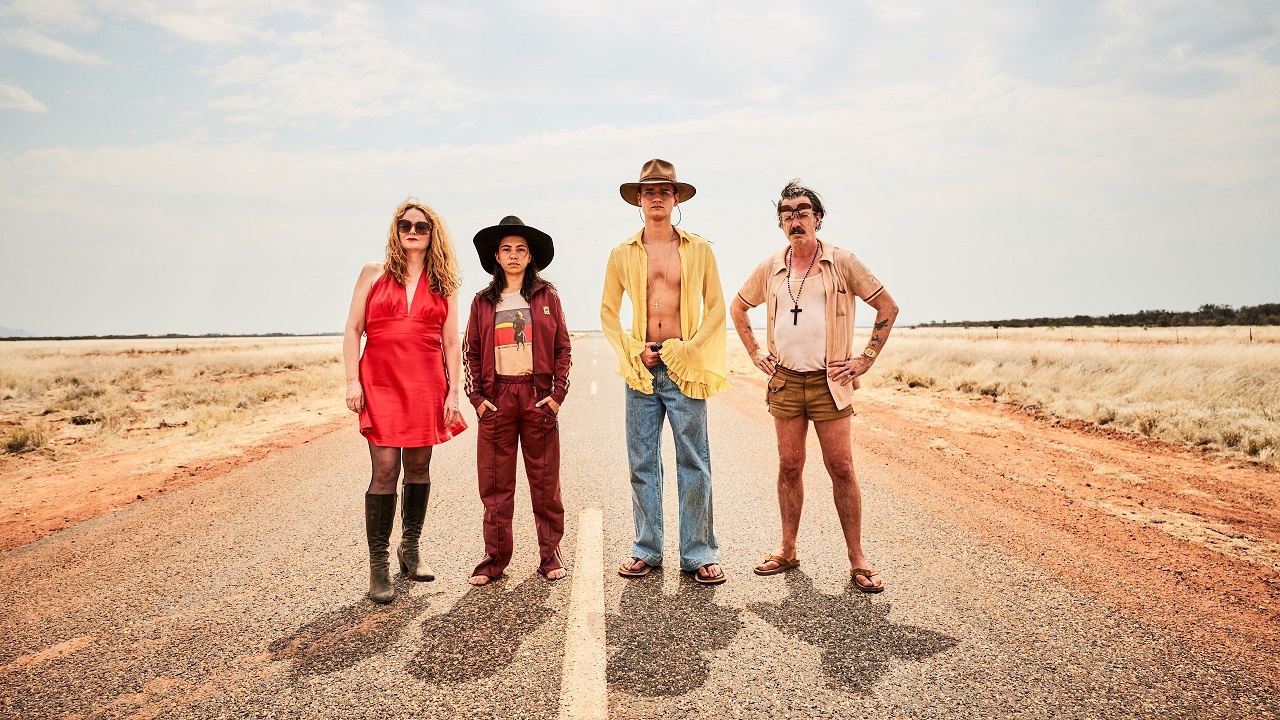
8. Thou Shalt Not Steal
This Stan Original Series, set in the 80s and across the Australian desert, saw a couple of bona fide Aussie screen legends—Miranda Otto and Noah Taylor as a sex worker and fraudulent preacher respectively—pursue two teenagers across the unforgiving landscape. With plenty of comedy to go along with the crime, a star-making turn by young lead Sherry-Lee Watson, and assured direction throughout, it was easy to see why critics raved about this one, including one Luke Buckmaster—of Flicks, but who wrote elsewhere, “has future classic written all over it.”
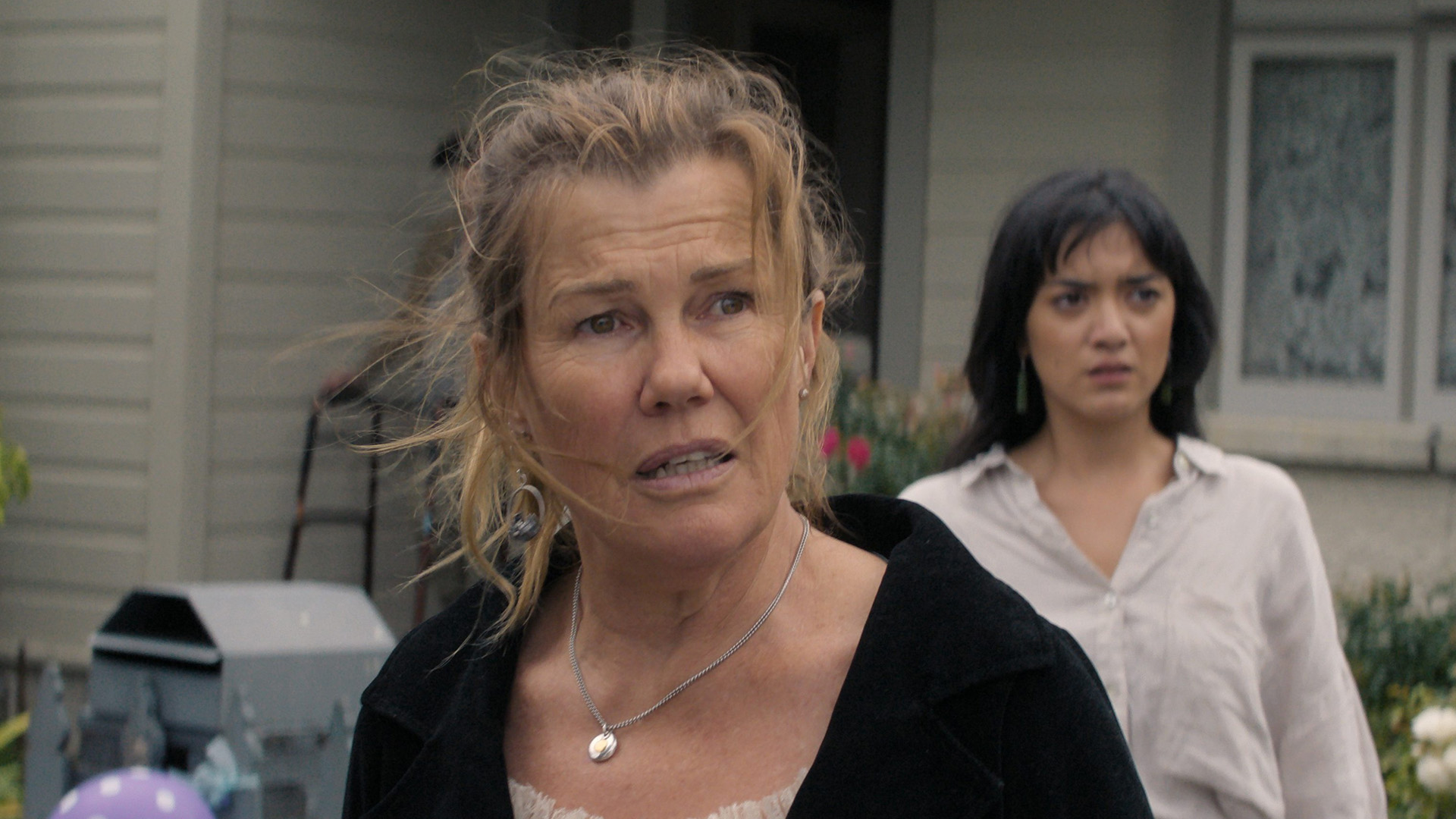
7. After the Party
Actor Robyn Malcolm has impressed audiences in Aotearoa for decades, and the rest of the world finally caught up with her incredible lead performance in After the Party. The New Zealand drama, which aired in its home country in late 2023 but found global acclaim this year (and swept the recent NZTV Awards), followed a family in crisis five years on from Malcolm’s Penny very publicly accusing husband Phil (Peter Mullan) of sexually assaulting a teenage boy. “Hands down the best acting on TV all year”, proclaimed the headline of The Guardian’s review in the UK, just one of the many pieces praising many elements of the show—all of which keep coming back to Malcolm’s marvellous performance.
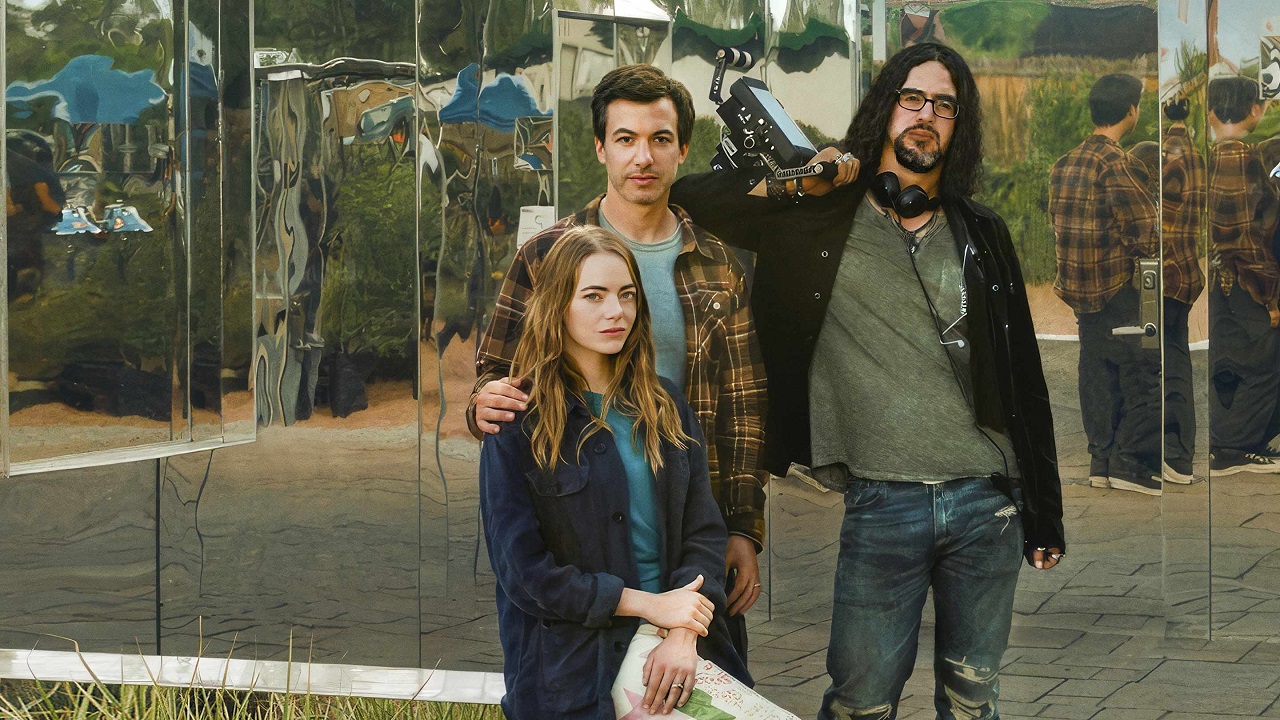
6. The Curse
In a case of if-you-know-you-know, the announcement that kings of discomfort Nathan Fielder and Benny Safdie were teaming up—and with, hang on, Emma Stone(?!) no less—had a lot of us in a fizz. But nothing could prepare us for what followed, either across the bulk of The Curse or its daring, borderline incomprehensible finale. The genre-bending show generated plenty of chatter with its searing look at white saviours and privilege—awkward, complicated and much, much weirder than you can imagine, even with this preamble.
As Eliza Janssen writes in the intro to her superb piece on the top 50 most unbearable cringe moments from The Curse: “With Emma Stone delivering one of the finest performances of her career as home-flipping sociopath Whitney, the limited series kept us in fits of hysterics, confusion, and awe, cutting to the heart of white guilt, gentrification, and reality TV’s sinister manipulative powers.”
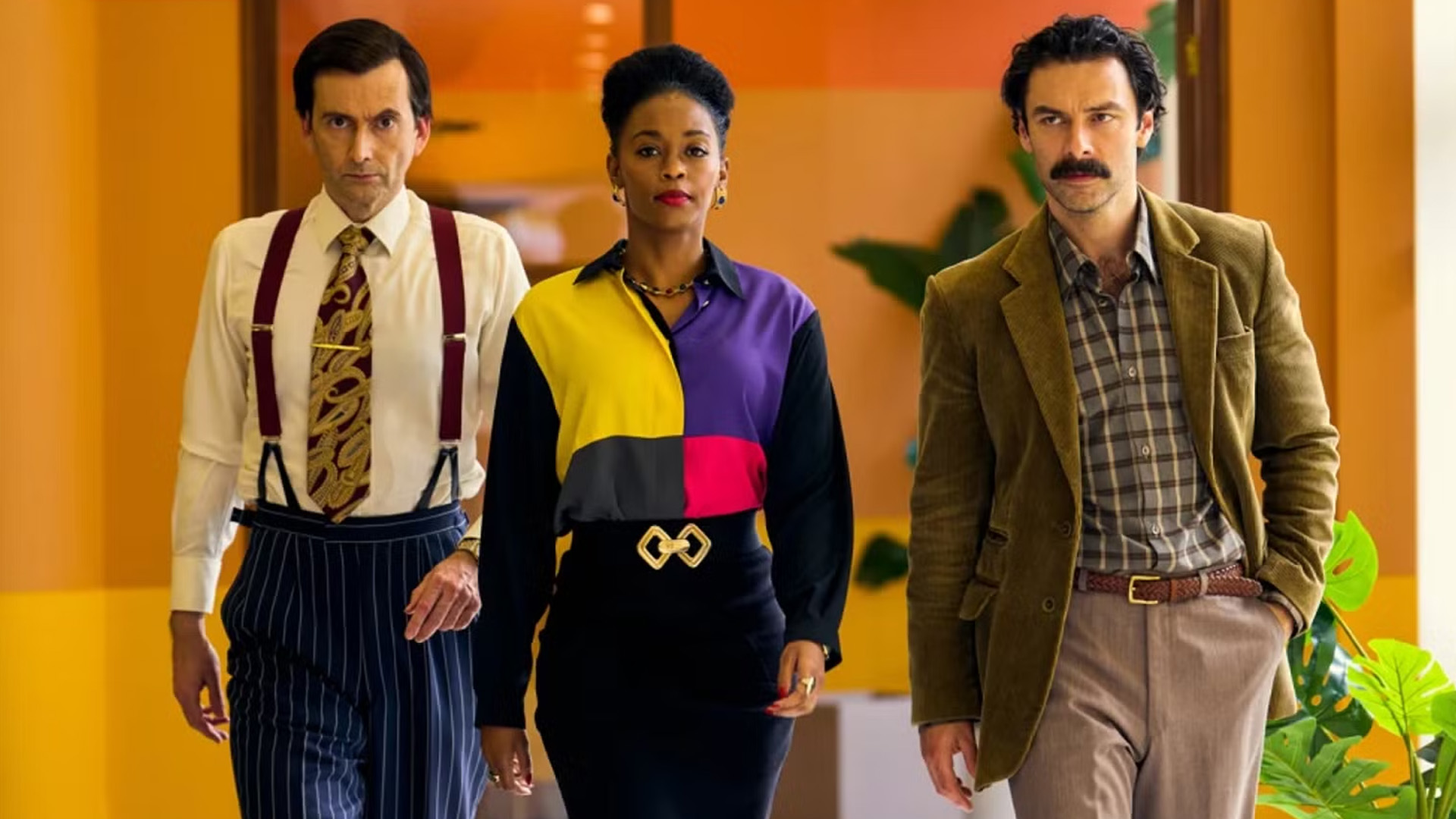
5. Rivals
Who would have expected a show set amid the early stages of UK television’s liberalisation under Margaret Thatcher to be such a fun watch? Anyone who remembered the heyday of UK “bonkbuster” author Jilly Cooper, that’s who… More than the broadcasting storyline, it was the bawdiness, bonking, boozing and backstabbing that appealed, Rivals leaning into its 80s setting with seemingly little apology for the social mores of the time (though classism, racism and homophobia are acknowledged).
Very much a throwback to the oversexed miniseries of yore, this first season (there’s another one coming) relished in deliciously OTT performances from the likes of David Tennant (playing Lord… Baddingham, lol) and Alex Hassell (as former Olympian showjumper-turned-Cabinet minister/relentless cocksman Rupert Campbell-Black). More texture was added by Katherine Parkinson and Danny Dyer (!) helping to assuage the guilt of enjoying what could otherwise be just a classic trashy pleasure.
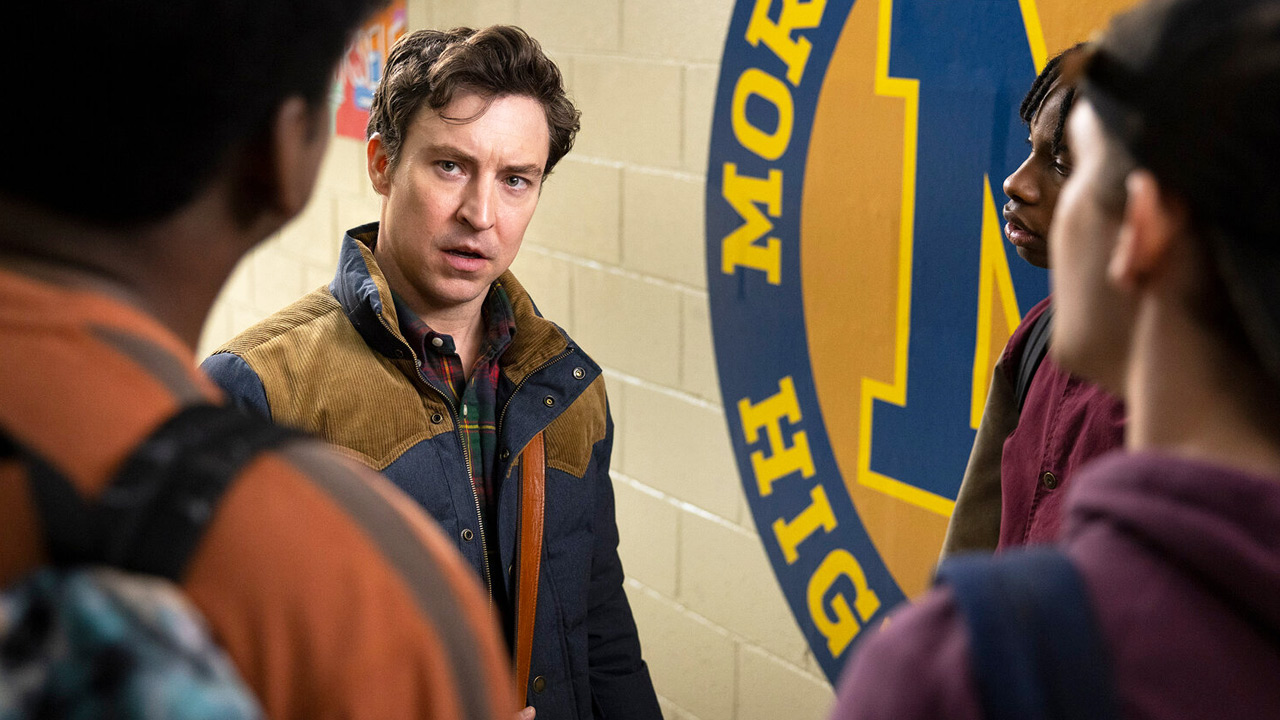
4. English Teacher
This high school-set workplace comedy, which relished walking into the minefields of cultural taboos, set out its stall early when Evan (the titular teacher) earns the wrath of bigoted parents by kissing his (male) ex in front of students. The complications of modern culture, rather than Evan’s sexuality, set up subsequent eps of a show that, at its heart, is more schoolhouse sitcom than something in search of any old scandal.
As Luke Buckmaster notes in his feature on the show: “The writers are rushing in where angels fear to tread, positioning English Teacher at the center of all sorts of cultural storms while attempting something that’d intimidate most of us: trying to make sense of the ever-changing attitudes of youth. But it knows exactly what it’s doing and how to extract comedic mileage from the tumbledown town of modern existence.”
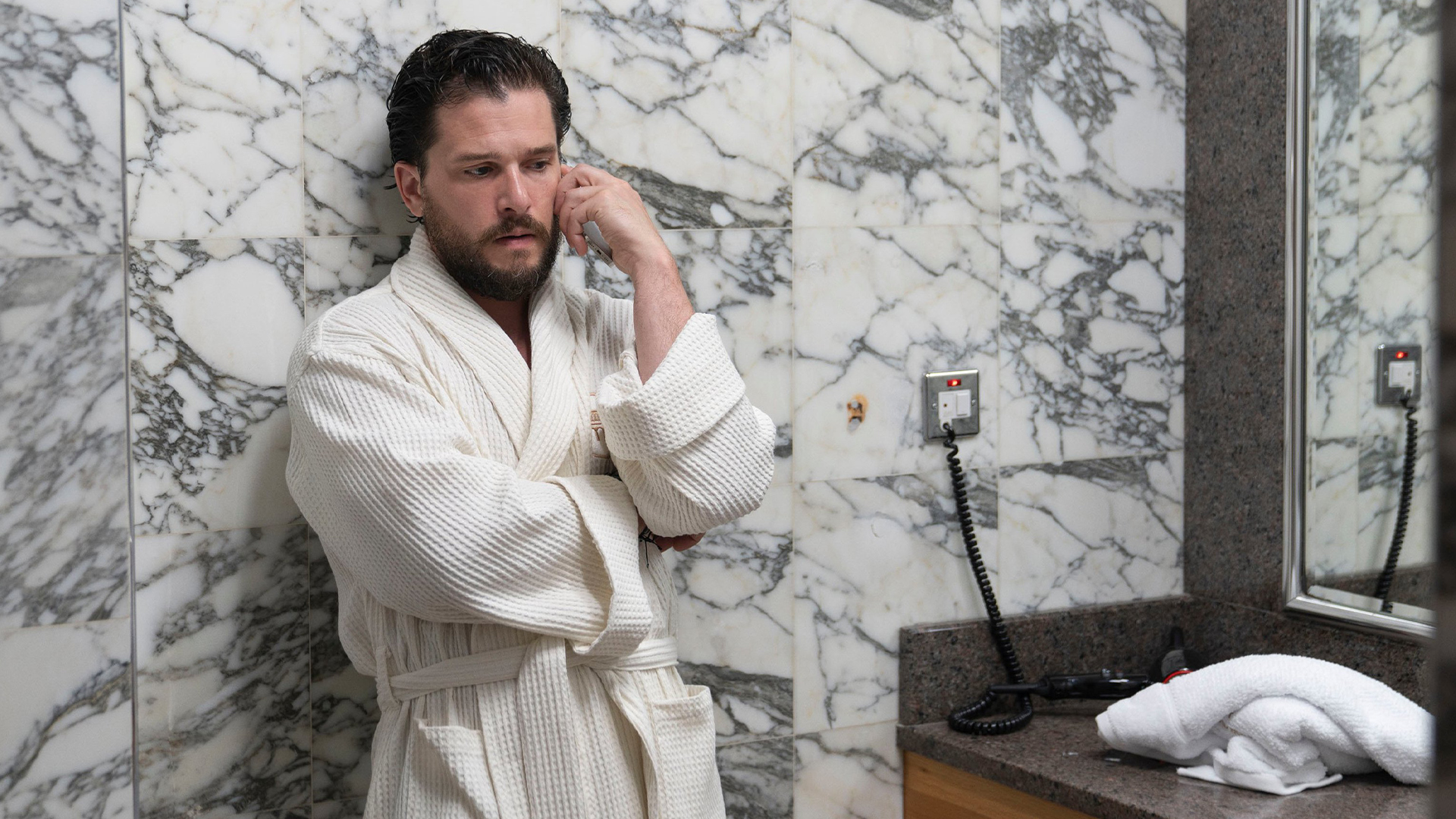
3. Industry
It’s a bit of a surprise at all that a show about banking and finance would reach the three-season mark, let alone evolve to be among the year’s best, but Industry has emerged as something much more than a UK-set Succession wannabe. The young graduates of season one are now embedded deeper in the dirty world of the financial sector—dirty being the operative word with the season three arrival of the spectacularly-named Henry Muck (Kit Harington), and the sleeper hit has established its own tone that’s now some distance from Jesse Armstrong’s now-concluded family saga/satire.
In the words of Clarisse Loughrey’s Show of the Week column: “It’s neatly bucked the “eat the rich” trend by recognising the sour reality that the wealthy have an almost cockroach-like ability to bounce back from karmic punishment. It’s an anti-comfort show. That’s the heart of its brilliance.”
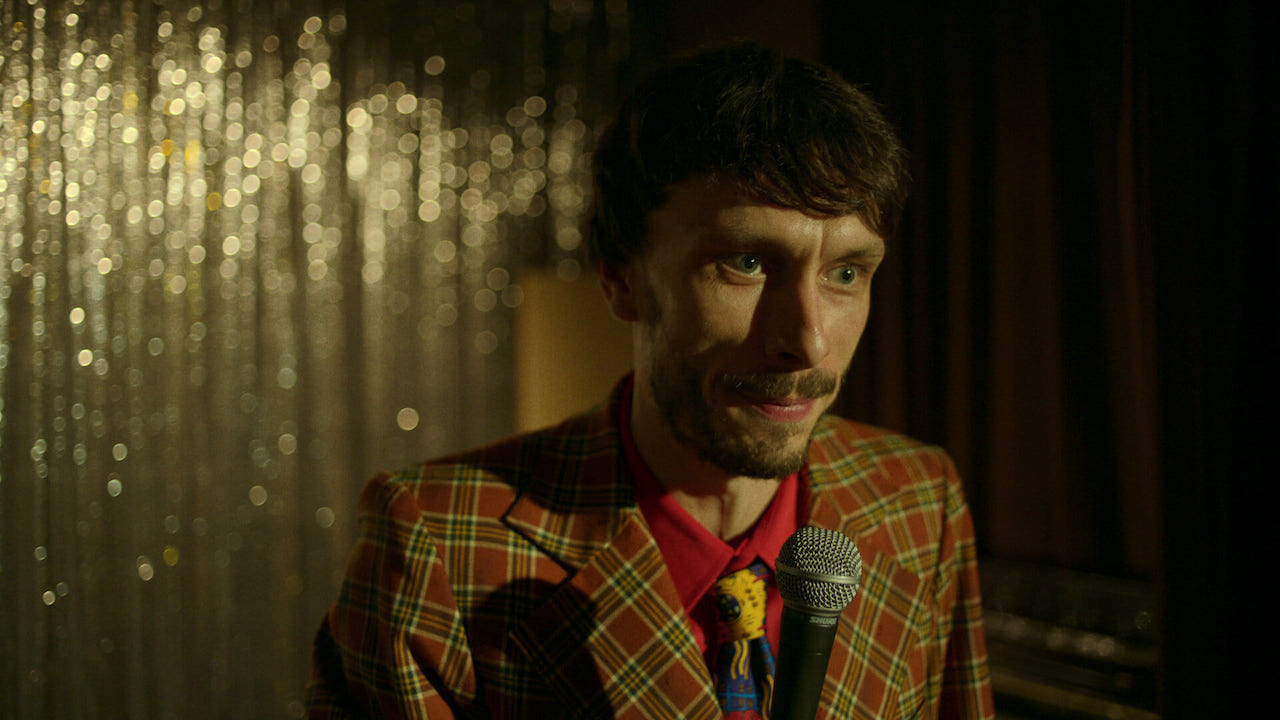
2. Baby Reindeer
Baby Reindeer and its April release on Netflix feel so long ago… and so does the degree to which the show captured everyone’s attention—a can-it-really-be-true story about stalking and interpersonal relationships that drew us into complex feelings of complicity to mirror its creator’s own shame. Starting as entertainment, the series explored darker and darker territory, and while it doesn’t feel part of the cultural conversation so much at the end of 2024 (barring the odd news report about a lawsuit), perhaps that’s because we all talked it out to such extent at the time that there doesn’t (yet) feel there’s much more to say. A true cultural moment of 2024.
As Eliza Janssen noted in her review: “Baby Reindeer reminded me most of Michaela Coel’s scintillating show I May Destroy You; both series focus on shadowy, suppressed memories of sexual abuse, experienced by hollowed-out London artists, and both spike their devastating, soul-searching flashbacks with laugh-out-loud British comedy.”
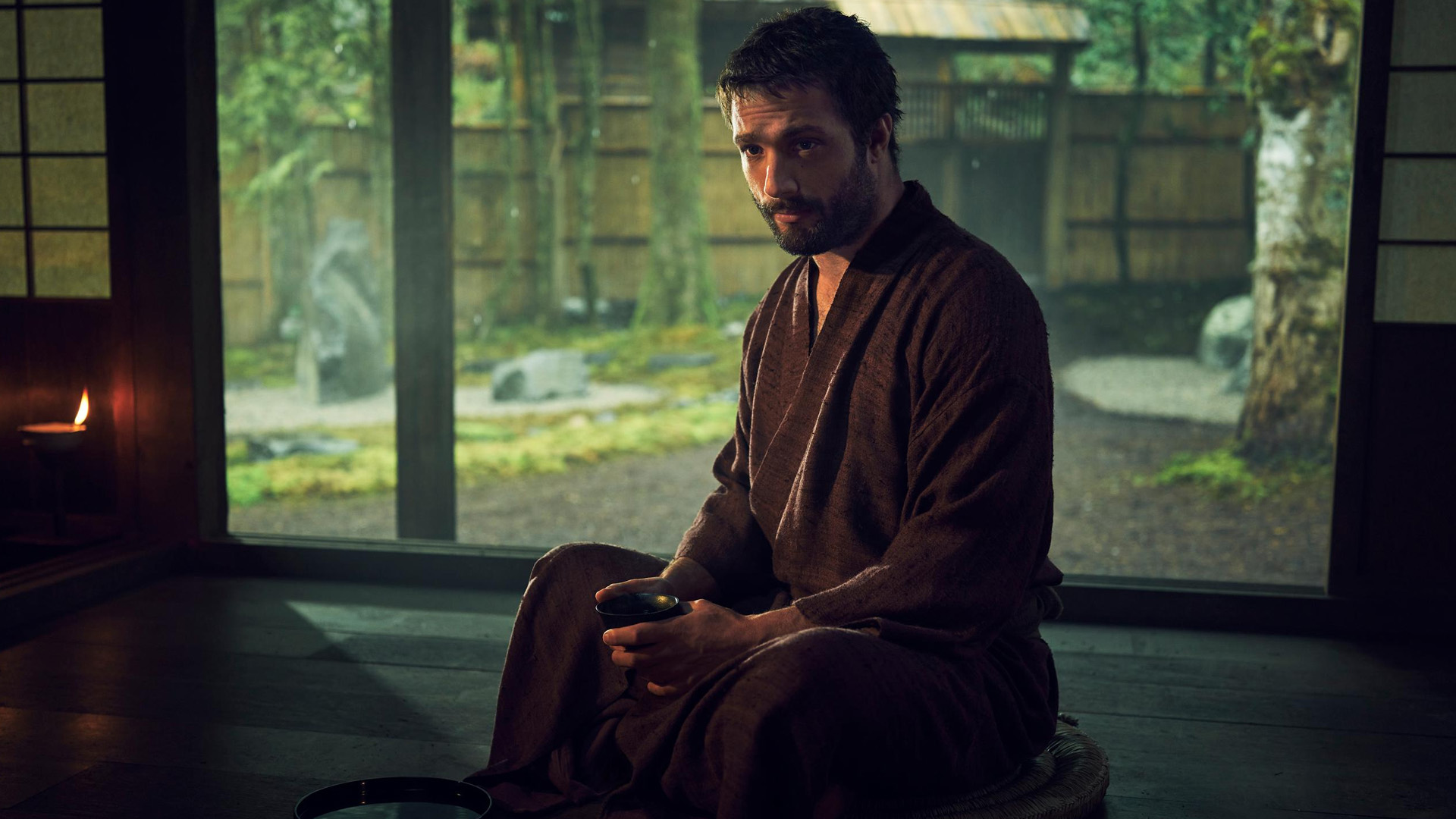
1. Shōgun
While Rivals revisited the 80s somewhat shamelessly, Shōgun took a different path, reworking James Clavell’s work of historical fiction (adapted as a 1980 miniseries) into something more befitting of the culture that it was set in. Much less white saviour-tropey than its previous iteration, the 2024 version centres Japanese culture (and language), achieving a tricky balancing act between respecting its source material and its setting. The world of 17th century feudal Japan is brought to life in stunning fashion here, in what was both a modern TV highlight, and a clear winner of top spot in our writers poll—by quite some margin.
As Travis Johnson put it in his review: “Shōgun is certainly complex; it’s a series that rewards, and sometimes demands, close attention, and at times the learning curve is steep—although Western audiences are certainly more familiar with Japanese history now than they were in 1980. But as far as stirring historical sagas of ambition and aggression go, it’s definitely in the upper echelon.”
































